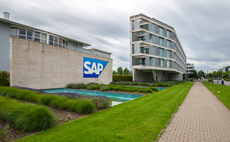Many organisations do not know that their SAP software is exposed, warns security specialist
Hundreds of organisations are running ageing, unpatched versions of SAP enterprise resource planning software – some with applications exposed to the internet. That is the conclusion of ERPScan ...
To continue reading this article...
Join Computing
- Unlimited access to real-time news, analysis and opinion from the technology industry
- Receive important and breaking news in our daily newsletter
- Be the first to hear about our events and awards programmes
- Join live member only interviews with IT leaders at the ‘IT Lounge’; your chance to ask your burning tech questions and have them answered
- Access to the Computing Delta hub providing market intelligence and research
- Receive our members-only newsletter with exclusive opinion pieces from senior IT Leaders



















